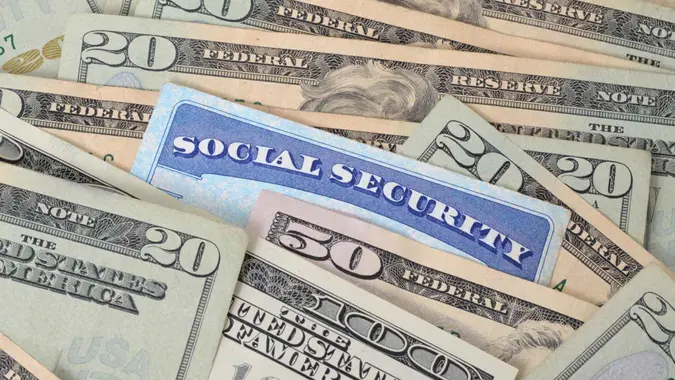Social Security COLA Scams Are on the Rise: 4 Red Flags To Watch For

Commitment to Our Readers
GOBankingRates' editorial team is committed to bringing you unbiased reviews and information. We use data-driven methodologies to evaluate financial products and services - our reviews and ratings are not influenced by advertisers. You can read more about our editorial guidelines and our products and services review methodology.

20 Years
Helping You Live Richer

Reviewed
by Experts

Trusted by
Millions of Readers
The Federal Trade Commission (FTC) announced that $12.5 billion was lost to fraud in 2024, and the Social Security Administration (SSA) is the top agency targeted by scammers, according to the SSA.
The Better Business Bureau (BBB) put out a warning earlier this year, urging Social Security recipients to stay alert regarding scams related to cost-of-living adjustments (COLA). Each year, the SSA approves cost-of-living adjustments for recipients to account for inflation. In 2025, the COLA was 2.5%.
As we approach the next COLA, typically announced in October, here are four red flags to watch out for.
Told You Must Apply for COLA
According to the BBB, scammers often contact Social Security recipients, claiming that they must apply for the COLA increase.
Troy Baker, the vice president of strategic partnerships and market expansion with the BBB of Michigan, told WWMT News that when scammers claim you have to apply for the COLA, they’ll often send you a link to apply. The application will typically ask for personal information, and sometimes even your financial details.
The SSA’s COLA is automatic. You don’t need to take any action to receive your increase in benefits.
Unsolicited Calls, Texts or Emails
Any call, text or email from the SSA is often a red flag.
While the agency may call in rare cases, it typically communicates via mailed letters if there’s an issue. According to the SSA, the agency may contact the public by phone for business purposes. If there’s a problem with your Social Security number or record, it usually mails a letter.
Requests for Your Social Security Number or Bank Information
If someone claiming to be from the SSA asks for your Social Security number, banking information or other personal details, it’s a scam.
The SSA doesn’t need this information to process your benefits, especially not over the phone, by email or through a random link. Sharing those details could give scammers direct access to your money or your identity. If you’re ever unsure, stop the conversation and go to SSA.gov or call its official number instead.
Threats or Pressure Tactics
Scammers often try to scare you into acting fast. They may say your benefits will be cut off or your Social Security number will be suspended. They could even threaten legal action if you don’t comply.
The SSA will never call to make threats or demand immediate action. Anytime a message relies on fear, it’s a red flag.
 Written by
Written by  Edited by
Edited by 

























